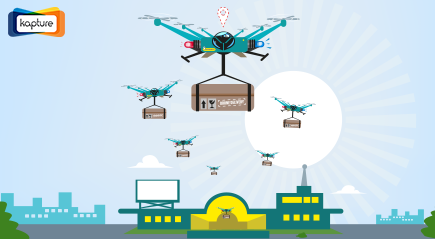Three SMB CRM Benefits that you could Turn your Business on its Head?
With a new dawn of e-commerce, CRM for small businesses have become an indispensable tool for modern businesses.
Why CRM is an important part of Small Businesses?

Today SMB industry is at the middle of an irretrievable change; even a few years ago, all small and medium businesses were focused locally. As customers purchased locally, they were assured of a regular source of income.
At an online E-commerce Era, every business needs to be simultaneously geared towards the local and national requirement. As this change has been rather sudden and abrupt, most small businesses have struggled to adapt to the changed markets situation.
As a result, a common businessman is exposed to an unprecedented amount of complexity and task-handling requirement. This volume of business might have been unheard for business even one generation before…
This is a list of primary task a small business has to handle on a daily basis.
1. keep a steady inventory of Products
2. maintain an updated Order List
3. Keep your delivery outflow Updated
While these tasks could take the majority of the working hours of a business owner, a CRM system could directly sideline it your partial activity. All these make a CRM system an indispensable part of your business activity.
These five SMB CRM benefits augments and opens-up new ways for a business to conduct its operations. For daily business operation, you are constantly looking to improve the existing system and add new capabilities.
1. Managing Higher Order Volume

A modern business needs to be run based on a higher order volume turnover. As a profit margin continues to be cut down on the retailer level, ability to handle multiple bulk order becomes more important.
In a bygone era, a business could get-by through keeping open telephone lines for incoming orders. But often times, it was also an inefficient means where a business cannot simultaneously handle two clients.
An SMB should handle the following challenges for managing higher order volume.
1. Increased client handling capacity
2. Manage Multiple lead channels
A successful retailer has to handle orders multiple sources – Email, SMS, shopping Websites, multiple calls, mail, multiple social channels etc…
There are numerous possible mistakes at this path such as processing a lead multiple times, increasing response time, product delivery loop.
A CRM system creates an independent log-in for each possible lead, with provision to integrate duplicate leads and escalate unresponsive leads.
Henceforth, a CRM system automates your business towards an increasing turnover.
2. Handling an ever Increasing product List

For a distributor and retailer alike, handling an ever-increasing list of stocks is a pressing issue. With each brand pushing its individual stock, gaining a picture of product requirement at ground level is significant.
With consumers having their own appeal for each product, having your client appeal could make a large difference. It’s a common situation where a retailer could end overstocking on a particular product, which is separated from the market situation.
A CRM gets you closer to the ground reality of demand associated with each product. Now you can immediately dissociate your decision making with product marketing and stock based on demand.
When Running a Small industry
When running a Small scale industry, there are multiple variables involved in your daily activity. From basic raw material to packaging material, you are required to source every part of your product.
A manufacturing plant often contains various manufacturing phases and industrial production stages. As a daily process, you may face difficulty at establishing a streamlined flow.
A manufacturing plant also requires a steady manpower resource and employment demands.
An Industrial owner’s essential task at hand becomes understanding multiple organization parts, adding a capacity to coordinate and augment different parts of the organization.
CRM software gives you an oversight of different parts involved in running an organization. Additionally, you can align different organizational parts for optimal functioning.
3. Co-ordinate your Network Chain

A successful retailer commonly operates as a chain of interlinked outlets, sourcing products from a common warehouse. In the case of the food-related network, you could be sourcing food from a one mother kitchen.
Under both circumstances, storing excess inventory at the retail level is a resource-oriented task, especially when it comes to perishable Goods.
Storing excess inventory at ground retail is resource-oriented in-terms of space and mobility.
In a normal network system, an independent person is normally labeled for updating inventory from a central position.
As any human-operated system, it’s vulnerable for processing errors, especially at situations with increasing transactions.
A CRM system lets you independently update your product listing from each particular endpoint. A retailer joint, with access to CRM software can register its current requirement.
The total requirement can be consolidated at the time of retailing, along with an option to ship your resources to a particular point.
A CRM system is set to automatically update your product listing appealing to a particular client.
play youtube,
play youtube,
xvideos,
xnxx,
xvideos,
porn,
Phim sex,
MP3 download,
Anime xxx,
porn,
sex xxx,
Flames C Maple Leafs,
javHD,

